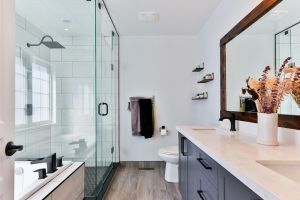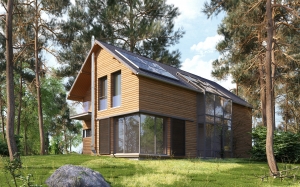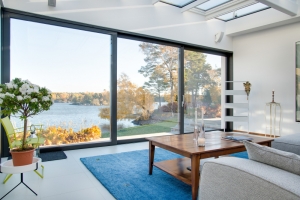Composite decking has gained immense popularity as a durable and low-maintenance alternative to wood decking. However, for those considering making the switch, there are often questions and uncertainties surrounding this innovative material. Here, we'll address some of the most commonly asked questions about composite decking to help you make an informed decision for your home.
What is composite decking?
Composite decking is a blend of recycled wood fibers, plastic, and binding agents. This combination results in a durable, weather-resistant material that mimics the look of natural wood without the maintenance requirements.
How does composite decking compare to wood decking?
Unlike wood decking, composite decking doesn't rot, warp, splinter, or get damaged by insects. It needs minimal maintenance, such as occasional cleaning with soap and water, and it doesn't need staining or sealing like wood. If you like the wood effect, you can get NewTechWood composite decking boards that look just like the real thing.
Is composite decking environmentally friendly?
Many composite decking brands utilize recycled materials, such as reclaimed wood and plastic, making them a more sustainable choice compared to traditional lumber. Additionally, composite decking doesn't contribute to deforestation like wood decking does, further reducing its environmental impact.
Does composite decking fade or stain over time?
High-quality composite decking is designed to resist fading, staining, and discoloration caused by UV rays, moisture, and everyday wear and tear. However, it's important to go for a reputable brand with fade-resistant properties for optimal performance.
Can composite decking be painted or stained?
Unlike wood decking, composite decking can't be painted or stained since its color is already integrated into the material during manufacturing. However, some composite decking brands offer a variety of colors and finishes to suit different preferences.
Is composite decking slippery when wet?
Most composite decking products feature textured surfaces that provide excellent slip resistance, even when wet. However, it's always advisable to choose composite decking with a slip-resistant surface, especially if the deck will be installed in an area prone to moisture, like near a pool or spa.
How does composite decking handle extreme temperatures?
Composite decking is designed to withstand a range of temperatures, from freezing cold to scorching hot temperatures, without compromising its structural integrity. It doesn't warp, expand, and contract like wood decking, making it ideal for use in diverse climates.
Do I need professional help to install it?
While some homeowners with DIY experience may choose to install composite decking themselves, hiring a professional contractor is recommended to ensure it's installed properly with no issues. Professional installers have the expertise and tools that are needed to handle the intricacies of composite decking installation, including proper ventilation and drainage.
Is composite decking suitable for all climates?
Composite decking is suitable for most climates, including areas with high humidity, extreme heat, or freezing temperatures. However, it's essential to choose composite decking products specifically engineered to withstand the challenges of your local climate for the best results.
How do composite and wood decking compare on cost?
It's true that the upfront cost of composite decking may be higher than wood decking, its long-term durability and low maintenance requirements often result in lower overall costs over time. Additionally, the lifespan of composite decking typically exceeds wood decking, providing added value and peace of mind.






